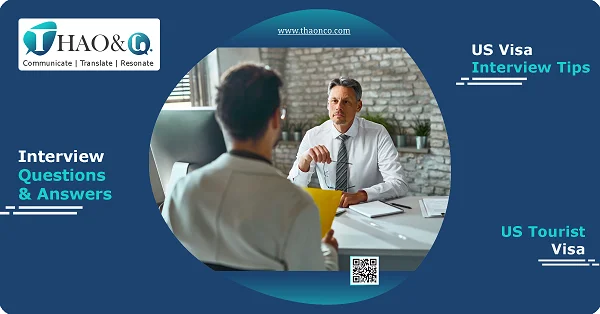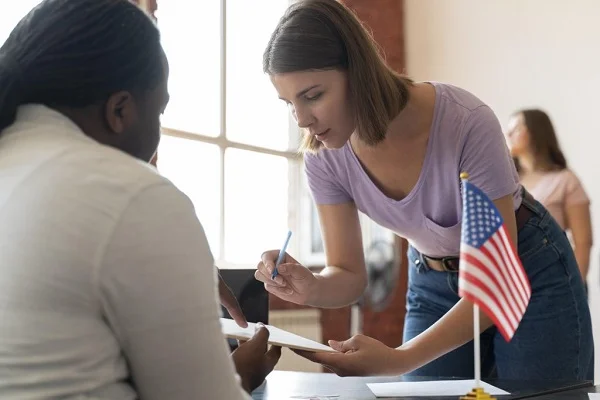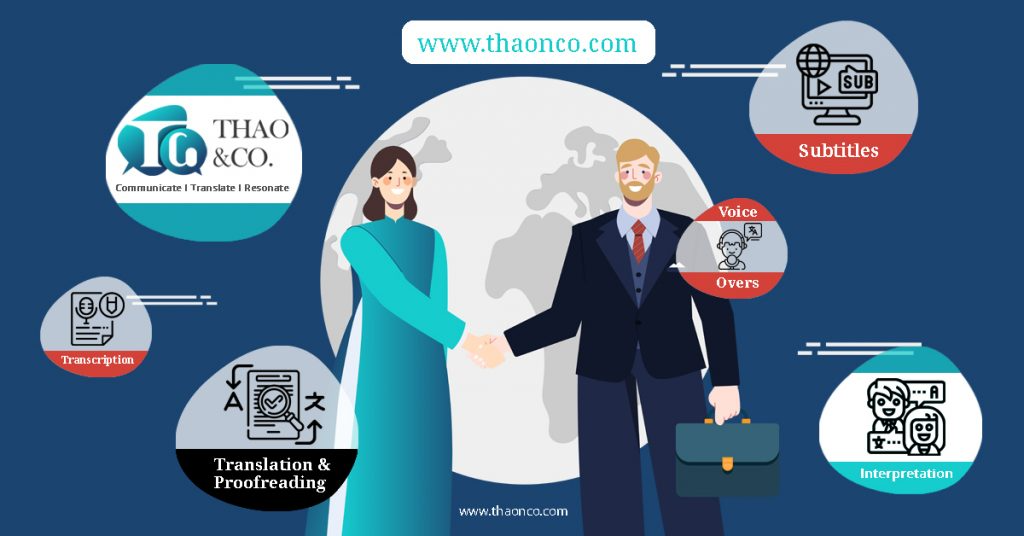Your interview with the Consular officer plays a decisive role in the success of your US tourist visa application. How to answer the 15 most common US tourist visa interview questions effectively. Read on!
Use these effective tactics when responding to B1/B2 visa questions at visa interview to increase your chances of a successful US tourist visa application.
By this question, the Consular officer verifies:
Sample answer:
You must provide the Consulate with precise details of your travel history abroad and the reasons for each trip. Adding more details about your arrival and departure times can enhance your credibility.
For example, “Previously, our careers and raising children left little opportunity for vacations. However, now that our children are grown and settled in the US, they generously sponsored us for a month-long European tour last year. They’ve been eagerly inviting us to visit them this year, so my husband and I made the decision to spend three weeks with them and applied for a visit visa.
You must present coherent explanations if you constantly travel abroad within a short period, dispelling any suspicions the Consular officer may have about attempts to embellish your passport.
The Consular officer wants to verify the intentions of your trip and assess whether you plan to stay permanently in the US. Providing clear and well-explained answers is crucial to building trust with the Consular officer.
Sample answer:
Aim for concise and informative responses, avoiding blunt one-word answers like “For vacation.”
It’s also important to be well-informed about your travel destination and have a clear plan for the duration of your visit. Make sure the travel itinerary you provide to the Consular officer accurately reflects the details you mentioned in your interview.
For example, “I’m planning an 8-day trip to the United States, visiting Los Angeles and Las Vegas.”
The Consular officer aims to check whether you are genuinely looking forward to a vacation in the US and if you have spent time preparing for the trip.
Therefore, be sure to browse featured attractions in the US when outlining your itinerary. Being well-prepared helps you present yourself in a genuine and authentic way.
Sample answer:
“I’d like to visit California and explore some of the popular attractions such as Catalina Island, San Diego City, etc.”
The Consular officer aims to assess the risk of you living illegally in the US.
Sample answer:
Be transparent and honest. Provide your schedules and destinations of your travel plan.
For example, “I intend to visit California for a week, including two days in San Diego, two days in Catalina Island, and three days in Santa Barbara.”

The Consular officer aims to verify if your answers align with the information provided in your visa application. Through this question, they examine whether or not you will likely consider illegal residency, especially if you have relatives in the US.
Sample answer:
Give this question a brief answer. For example, “I have a biological sister in the US.”
Friendly reminder: If the officer doesn’t ask you a specific question, don’t provide any irrelevant information. Remember not to mention any acquaintance or distant relative that are not included in your application.
The United States is known for its high cost of living. Your financial capacity, therefore, is closely scrutinized by the Consular officer. This question is usually for those with less substantial funds.
You should showcase a well-defined budget to gain the Consular officer’s trust and avoid suspicion of you going to the US with illegal motives.
Sample answer:
Provide a concise answer that indicates who is responsible for sponsoring your trip. It is preferable to prepare your financial proof beforehand and mention it in your answer.
For example, “I’m paying for the trip by myself. I have budgeted all the expenses. Please see my bank statements in my documents.” or “My son/daughter is pay for the trip.”
Strong evidence of the tie between you and your home country is also vital to the success of getting a US visa. Besides personal assets, familial ties and other relationships are also taken into consideration.
If you’re married, provide a marriage certificate. If you have children, provide their birth certificates. In some cases, your house registration book can also be helpful as proof of your intention to return to your home country.
Sample answer:
You can briefly answer: “I have been married for … years and we have … kid(s).”
If you are single, you can simply say: “I am single.”
Most people go on vacation with others. Single travelers may likely raise concerns about potential intentions to reside and work illegally in the US. So, the Consular officer may particularly focus on whether you have companions for your trip.
Sample answer:
Tell the officer if you travel with others. If you are traveling alone, clearly explain your reasons.
Stable employment is also taken into consideration by the Consular officer. Having a stable job in your home country proves your commitment to your life there. This minimizes suspicion of illegal immigration intentions.
Sample answers:
Furnish sufficient information about your occupation, position, and company, featuring relevant papers such as your employment contract.
For example, “I am the head of the marketing department at ABC corporation.”
Detailed information about your occupation is more favorable than a lukewarm response like “I am an office worker.”
The Consular officer asks this question to verify your financial capacity and how closely you are tied to your home country. The general consensus is that the greater your assets in your home country, the stronger the bond between you and the country. Thus, you would be less likely to leave your home country permanently.
Sample answer:
Present itemized evidence of your assets, such as houses, properties, vehicles, etc. Please note that the mentioned assets must be under your ownership or co-ownership.
This is a simple question. But it can show your understanding of the US and whether you are serious about your trip. The Consulate may reject your application if your answers don’t make sense.
Sample answer:
You must provide comprehensive descriptions of your accommodations in the US, covering addresses, cities, regions, etc.
For example, “I will stay with my relatives in Oregon.”
This question investigates whether you have failed a US visa interview before. If yes, what is the reason? Give an honest and straightforward answer.
Sample answer:
As mentioned above, it’s best to be honest as the Consular officer can easily look up this information. Some people may assume that admitting they have been rejected before will make them look bad and hurt their chances in the current interview. But this is just a myth.
If you need to extend the duration of a previously obtained visa, refer to the guide on extending the US B1/B2 Visa to understand the procedures, documents, and costs that need to be prepared.
A roundtrip ticket can prove that you intend to return to your home country after your trip. Having this ticket helps gain the trust of the Consular officer.
Sample answer:
For this question, you may present your roundtrip ticket, along with the itinerary of your trip.
However, having a roundtrip ticket isn’t mandatory. You don’t absolutely need to buy one before the interview, as there are many other ways the officer can verify your intention to return to your home country.
Don’t let the question trick you! This one appeals to the American dream. Strike for neutrality with this question. You may come across as suspicious if you are too insistent.
Sample answer:
You can answer this question by acknowledging the advantages of life in the US while maintaining your commitment to your home country. Or you can mention your living habits in your home country that would not fit with permanent US residence, showing the officer that you have strong reasons to return home.
For example, “While I’m excited to visit the US, I have a strong life built here in [your home country]. I enjoy [unique aspects of your home country] and I wouldn’t want to give that up permanently.”
Through this question, the Consular officer may assess the validity of your answer. People who are not entirely truthful with their answers are likely to stammer or exhibit uncomfortable body language.
Sample answer:
Be sure to always answer every question truthfully. This keeps your statements consistent throughout the interview. You can elaborate further to strengthen your answers while maintaining a calm and confident demeanor.
Related Article: How Long Can You Stay in The US with a Student Visa?
🔴 To practice better, you can download the PDF file of U.S. tourist visa interview questions and answers.
The interview questions for US tourist visas remain a topic of great concern. In this article, Thao & Co. addresses some frequently asked questions regarding US visa interviews.
Generally, Consular officers can interview you in your mother tongue. You can seek interpretation support from local officers during the interview if you have difficulty understanding the questions. However, you should opt for interviewing in English if possible. By doing so, you can ensure all information is conveyed accurately to the Consulate officer.
Applicants typically attend visa interviews at the U.S. Embassy & Consulate in their home countries. The two US visa interview locations in Vietnam:
In Hanoi:
The U.S. Embassy in Hanoi: Floor 2, Rose Garden Tower, 170 Ngoc Khanh Street.
In Ho Chi Minh City:
The U.S. Consulate General in Ho Chi Minh City: 4 Le Duan Boulevard, District 1.

There is no standard number of questions for B1/B2 visa interviews. The officer will ask as many or as few questions as necessary to determine whether you’re eligible. Typically, the interview lasts a few minutes for each applicant, leaving room for 2 to 5 questions.
Make sure you understand the questions from the Consular officer properly to respond with appropriate, informative, and compelling answers. Feel free to ask the Consular officer to repeat the questions if necessary.
The Consular officer will announce the result upon the interview completion. If you pass the interview, you are required to submit your passport and wait for a week. The Consulate will issue your US tourist visa and deliver it to you via postal service.
Even ample financial funding and travel experiences may not completely guarantee a US visa approval, as the interview round is a primary determinant. It’s important that you are informed of the type of US tourist visa you are applying for, whether your application requires an invitation letters, etc.
Here are 4 pointers to bolster your chances in the visa interview.
1. Give faithful and consistent answers that match the information in your completed DS-160 form.
Some people may fall into the trap of providing memorized answers they learn somewhere online that promise to persuade any Consular officer. While it’s alright to browse sample answers, you also need to tailor those answers to fit your case. Otherwise, the Consular officer can easily detect inaccuracies in your answers.
Keep in mind that Consular officers are well-versed in the intricacies of the visa interview process and psychology. They can generally assess the validity of your answers based on your body language.
Besides, many people may not intend to be dishonest, yet end up providing inconsistent answers. For instance, they declared to have no relatives in the US while filling in the DS-160 form. However, during the interview, they suddenly recall having a friend or distant relative and answer “Yes.” Such discrepancy can cast suspicion, potentially leading Consular officers to deny your visa application.
2. Dress for success: Be presentable in your US visa interview.
While there are no official policies on visa interview attire, the formal nature of a visa interview comes with certain expectations regarding clothes and behaviors. To create a good impression, go for professional attire. However, make sure you’re comfortable and relaxed in your outfit. If your clothes don’t fit you well, your confidence and your body language may be negatively affected.
How you present yourself in your interview should be consistent with the information you provided in your application. For example, if you claim to be a high-level executive, you should avoid coming to the interview in sloppy clothes and looking uncomfortable. This suggests inconsistency and a lack of attention to detail, which may hurt your chance of visa approval.
3. Be meticulous with your documents
The documents you present during your interview may play an important role in deciding your eligibility for a US tourist visa. In addition to the required documents, be sure to have supporting documents to best present your case.
While Consular officers can generally communicate in your mother tongue, some may have difficulty with written documents. Having certified translations of non-English documents shows that you’re well prepared. High-quality translations can save the officer a lot of time and effort, as well as demonstrate your professionalism.
Let Thao & Co. boost your success in your US visa interview with professional translations!
Our Certified + Notarized Translation Service is performed by a team of seasoned native linguists. Choose Thao & Co. for:

4. Understand cultural differences in communication
Most Western cultures prefer some level of eye contact during conversations. On the other hand, Eastern cultures consider direct eye contact impolite or aggressive.
To leave the right impression during your interview, it’s best to:
So far, we have covered the most common US tourist visa interview questions and sample answers. If you are interested in other types of US visas, check out our other guide on US student visa for more advice!
Still feel overwhelmed? Have documents you need to translate into English? Thao & Co.’s ready to help!
Leave your information on our Get a Quote page today, and we’ll get back to you as soon as we can!